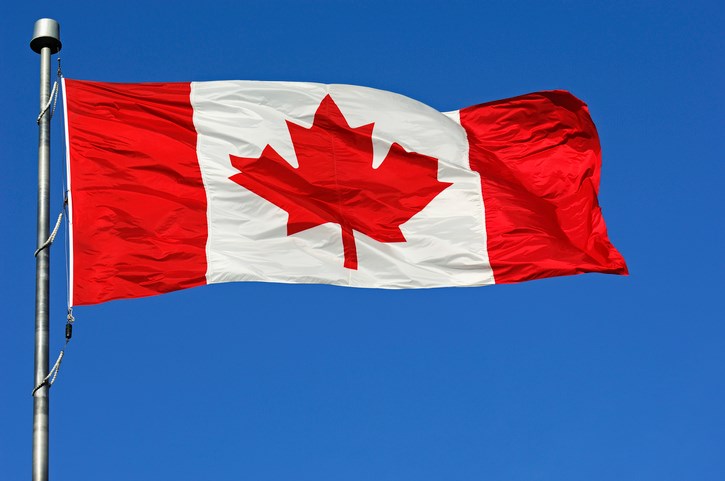Every year, Research Co. and Glacier Media ask Canadians about their perceptions on separation, joining the United States, and the state of affairs under their current premier and prime minister.
In 2021, our data collection journey happened to take place as Canadians prepare for a federal election.
Only 13% of Canadians believe their province would be better off joining the United States and becoming an American state, . The sentiment is more pronounced in Alberta (17%) and Quebec (also 17%), but lower in Saskatchewan and Manitoba (14%), Ontario (13%), British Columbia (12%) and Atlantic Canada (10%).
Just over one in five Canadians (21%) think their province would be better off as its own country, down three points in a year. The story here is the evident stagnation in one province where some people have recently flirted with secession and the significant drop in another that held two referenda on the matter in 1980 and 1995.
The proportion of Albertans who are supportive of separation on this question is exactly the same in 2021 as it was in 2020 (28%). This means that, in a year that has featured extensive discussions about the treatment afforded to Alberta by Ottawa and the creation of the Maverick Party, the needle has not moved at all.
The situation in Quebec is more striking. In 2020, 36% of Quebecers harboured separatist feelings. This year, the proportion has fallen to 25%, hardly the “winning conditions” that the late Lucien Bouchard dreamt of in the late 1990s. This drop is accompanied by the persistent disappearance of the provincial Parti Québécois and a lower share of the vote for the federal Bloc Québécois (, with the federal Liberals at 39%).
Almost half of Canadians (47%) think their province would be better off with a different premier in charge. However, as has been the case throughout the COVID-19 pandemic, the Canada-wide average can be misleading. While fewer than two in five residents of British Columbia (36%) and Quebec (38%) yearn for a different head of government, the proportion rises to 54% in Ontario and 68% in Alberta.
, when COVID-19 was still well away from Canada’s shores, 60% of Ontarians and 57% of Albertans appeared dismayed by the performance of Doug Ford and Jason Kenney. The pandemic has not allowed these two premiers to reconnect with constituents. Since then, the results have been slightly kinder to Ford and significantly worse for Kenney.
Also in December 2019, just two months after the last federal election, half of Canadians (50%) thought their province would be better off with a different prime minister. Canada-wide animosity towards Justin Trudeau fell to 38% in 2020, but has risen to 47% in 2021.
Half of Albertans (50%) suggest that Trudeau has not been a good prime minister, but this result is lower from what was observed in 2020 (54%) and 2019 (65%). Ill feelings towards Ottawa have not disappeared in this province, but they certainly have subsided. In Quebec, only 37% of residents think they would be better off with someone else in charge of the federal government – remarkably consistent with the result of the previous two years.
There is much to digest in these numbers, especially with a federal election now scheduled to take place on September 20. The Bloc is no longer commanding the same level of support that it enjoyed in the last election, at a time when separatism is no longer as prevalent in the minds of Quebecers.
The Maverick Party was supported by when we asked earlier this month. Their numbers might be better in other provinces as the campaign rolls on, but their success will hinge on just how many candidates put their name forward and where they actually run.
It is important to look at how separatist views have been tied to the perception of the people who are actually in charge of the provincial governments. François Legault, who was elected with 37% of the vote in 2018, remains one of the highest-rated premiers on pandemic management. His government’s decisions are endorsed by many residents who did not vote for his party three years ago.
In Alberta, things are different. Kenney, who won a majority mandate in 2019 with 55% of all cast ballots, finds two-thirds of the province’s residents wishing for someone other than him to be in charge. At this moment, you are more likely to run into an Albertan who is displeased with Kenney than into one who is upset with Trudeau.
The situation in Alberta outlines a major shift in the dynamics of the nascent campaign, especially when we think of the success of the federal Conservatives in Alberta just a few months after Kenney’s provincial victory with the United Conservative Party in 2019 (69% of the vote and 34 of the 35 House of Commons seats at stake). It is not a coincidence that radio and television ads criticizing the Conservatives have taken the time to mention Kenney specifically.
Mario Canseco is president of Research Co.
Results are based on an online study conducted from August 12 to August 14, 2021, among 1,000 adults in Canada. The data has been statistically weighted according to Canadian census figures for age, gender and region. The margin of error, which measures sample variability, is plus or minus 3.1 percentage points, 19 times out of 20.

